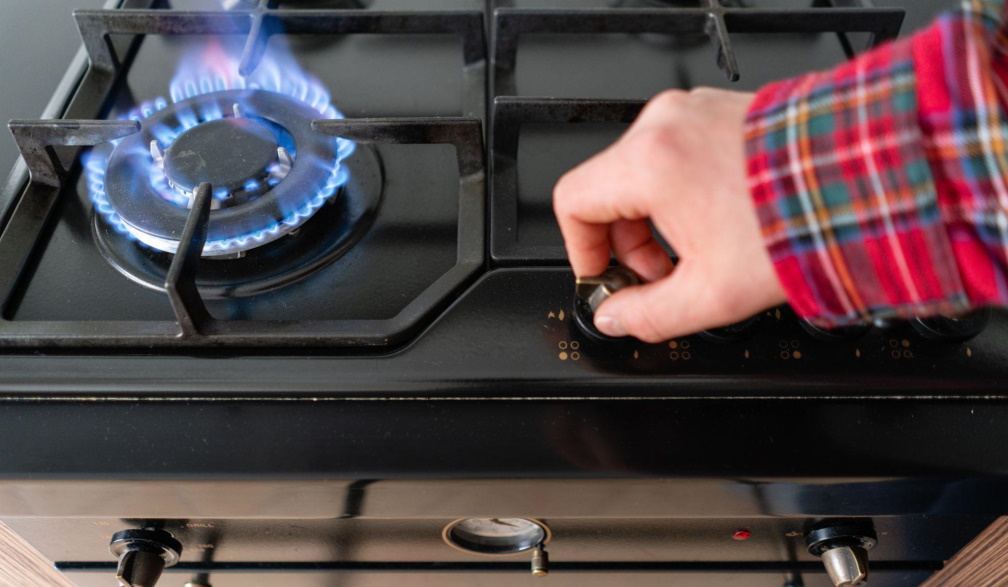Gas Vs Electric: Which Cooktop is Right For You?
- Written by NewsServices.com

When buying a new stove, you'll likely hear that gas stoves and electric stoves have their advantages and disadvantages. Which one's right for you? We're here to help.
Dive in to learn more about both gas stoves and electric stoves, as well as some things to consider as you shop around.
Electric Cooktops
Pros
Cheaper to purchase
Electric stovetops tend to be much more affordable than gas ones. This is in part because electric stoves do not require a complex gas line installation, which makes them easier to install.
Easy to clean
Electric stoves are easy to clean because there's no open flame or exposed burner tops. There's also no need for special cleaners because spills can simply be wiped away with a damp cloth or sponge.
Cons
Remains hot long after cooking
Electric cooktops remain hot long after cooking and can be dangerous for children or pets. On the other hand, gas stoves cool off quickly, making them safer for kids and pets.
Slower control
Gas stoves have faster control than electric cooktops. Gas burners respond quickly to changes in temperature, so you can make fine adjustments easily. Electric cooktops have slower control and take longer to get hot or cool down.
Uneven cooking
An electric coil burner creates uneven heat across the surface, which means that some parts of your pot will cook faster than others. This can be particularly problematic when you're boiling water or making pasta since you want an even boil throughout the pot.
Spills & stains can be baked on
No matter how hard you try, you can't avoid spills on an electric stovetop. If you spill tomato sauce on a gas stovetop, it will burn off. On an electric cooktop, the sauce will bake on the surface and leave a permanent stain.
Energy efficiency
Gas stoves are more energy-efficient than electric stoves, and they're also more cost effective to run, according to Energy Design Yorkshire. The reason for this is simple: Gas is a much more efficient source of heat than electricity.
Gas Cooktops
Pros
Easy to control
It's easy to turn down or off a gas stove when you're cooking, but not so easy with an electric one. When you're making something that needs a lower temperature - like melting chocolate or simmering soup - you can't just turn the heat down on an electric stove. You have to turn it off completely, wait for it to cool down and then restart it at a lower temperature. That can take a long time, and if your food burns during that time, there's nothing you can do about it.
No loss of power
Gas stoves don't use electricity, so they don't rely on power sources outside your home. This gives you more control over your cooking and makes gas stoves ideal for emergency situations. If the power goes out, you can still use your gas stove for cooking meals.
High efficiency
When you turn on a gas stove, you're using a small amount of gas that heats up just enough to cook your food without wasting any energy. This means that when your food is ready to be cooked, all of the gas has been used up and can't be wasted on heating up an empty space!
Cools quickly
The heat source on a gas stove cools down much quicker than one on an electric stove, which makes it easier to maintain consistent temperatures throughout the cooking process.
Cons
Expensive purchase cost
Gas stoves cost more money upfront, but it's a one-time investment. Electric stoves, on the other hand, are cheaper to buy and maintain but cost more over time.
Difficult to clean
Gas stoves are more work to clean because you have to clean the entire stovetop and burners. Electric stoves don't require any cleaning, but you will have to wipe them down from time to time.
Fire risk
Gas stoves can cause explosions if they are not properly installed or maintained. They also pose a fire risk if there is a leak in the pipes leading from the gas storage tank to the stove itself.
Conclusion
In the end, which one you choose is entirely up to you. Choosing the right stove for your home and needs will have a significant impact on your enjoyment of cooking, so if you're planning to do some research, we hope we were able to help you make an informed decision. Oh, and remember, if you do decide to go with gas, then you’ll need a licensed gas fitter to help install your new gas stove

















